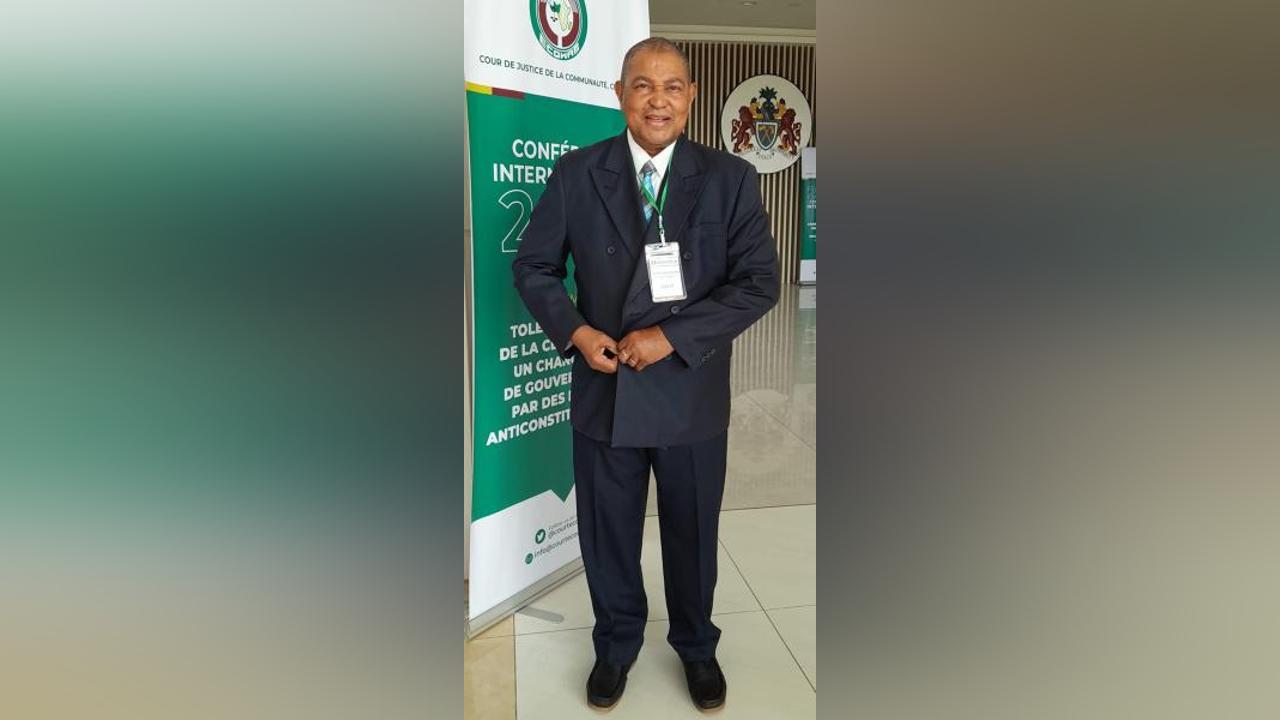
Africa-Press – Cape verde. Felisberto Vieira was the government’s choice to be Cape Verde’s ambassador to Cuba, a choice that the President of the Republic did not accept and which caused yet another moment of tension in relations between the two institutions. The Prime Minister says that Felisberto Vieira meets the conditions to be Cape Verde’s diplomatic representative in that country.
The possibility of Felisberto Vieira being Cape Verde’s ambassador to Cuba was vetoed by the President of the Republic.
In a statement, the Presidency explained that immediately after his inauguration, “the President of the Republic, in order to avoid discretion, personalization or even partisanship, defined very clear and precise criteria for considering proposals for the appointment of Ambassadors Extraordinary and Plenipotentiary”.
In the statement, the Presidency of the Republic acknowledges that “under the terms of the Constitution of the Republic, such proposals [appointment of ambassadors] must be formulated by the Government”, and explains that “the aforementioned criteria were shared with that Sovereign Body and are, in fact, public knowledge”.
The red lines
In the statement, the President of the Republic outlines some ‘red lines’ that he does not intend to see crossed with regard to the appointment of ambassadors:
“For the position of head of diplomatic missions, the President of the Republic gives preference to career diplomats, naturally respecting the requirements imposed by their specific statute, such as the minimum category; in the case of proposals from individuals who do not belong to the diplomatic career, that is, proposals for ambassadors based on political choice, the ‘red lines’ set by the President of the Republic are as follows: no one who is already retired will be appointed; no one who is about to retire will be appointed; no one who has a strong connection with active politics or is in the ‘political whirlwind’, recalling the expression used by the President of the Republic when he publicly explained these criteria. Among the individuals whose proposal for appointment is based on exclusively political considerations, the President of the Republic will give particular attention to those who have special experience accumulated in foreign policy, such as a former President of the Republic, a former Prime Minister or a former Minister of Foreign Affairs”.
Noting that “Career Diplomats cease, by law, to hold any and all functions upon reaching the age limit (65 years)”, José Maria Neves recalls that in “obedience to the criteria set out above, several nomination proposals have already been rejected by the President of the Republic” and that he has “repeatedly argued that, for a State on the eve of celebrating its 50th anniversary, it is essential to invest in Career Diplomats to head Cape Verde’s Diplomatic Missions. In fact, in 2016, we were already on the verge of reaching this level (there was only one case of a Head of Mission who was not a Career Diplomat). It should also be the national political class’s mission to contribute, through its discourse and its uplifting stance, so that Cape Verde finally reaches this milestone of maturity in the management of its Diplomacy”.
In concluding the statement, the President of the Republic argues that “in this specific case of Dr. Felisberto Vieira, his eventual appointment to the post of Ambassador would be tantamount to crossing all the ‘red lines’ mentioned earlier in this text. Hence the strangeness of the proposed appointment itself.”
Conditions met
For his part, the Prime Minister said, this Tuesday, in the USA, that Felisberto Vieira meets the conditions to be the ambassador of Cape Verde in Cuba.
Speaking to RCV, Ulisses Correia e Silva said that Felisberto Vieira is “a Cape Verdean citizen who has a history of dedication to politics and service to the Cape Verdean nation. Therefore, he would be qualified to represent the country”.
Still, he recalled that the President of the Republic has his criteria, and that the Government “converges” in relation to situations of understandings that have to be defined.
“The President of the Republic must approve or not approve. That is why I will not go into detail. It is one thing to have a profile and another thing to decide to make it happen”, explained Ulisses Correia e Silva, pointing out that this is an issue to be discussed within an institutional framework.
Felisberto Vieira does not comment
Felisberto Vieira refuses to comment on the case. In a text published on Facebook, the former PAICV secretary-general writes that he will not comment “on this occasion, due to imperatives of civic responsibility and political coherence, on the Government’s proposal that he consider being the Ambassador of Cape Verde to Cuba and the already public refusal of the President of the Republic to make such a proposal viable”.
In the same text, Felisberto Vieira argues that the “Republic needs to expand and modernize sovereignty, democracy and development. To each and every one, I would like to say that I am calm and serene, concerned about how things are going, but whenever possible, I am available to make my modest contribution for the common good.”
Julio Correia criticizes
Also on Facebook, Júlio Correia says that the statement from the Presidency of the Republic raises “more questions than those it allegedly intended to answer or clarify”.
“What democratic rule of law do we live in and what political regime have we invented in which the Presidency of the Republic decides of its own accord to establish the criteria for appointing Ambassadors, in disregard of what is in the law and of dubious constitutionality?”, asks Júlio Correia.
The former PAICV deputy and vice-president of the National Assembly argues that “certain understandings, in order to become practices, must be approved as laws in Parliament and/or as decree-laws in the Council of Ministers, duly promulgated by the President of the Republic and always monitored by the Constitutional Court”.
For More News And Analysis About Cape verde Follow Africa-Press





